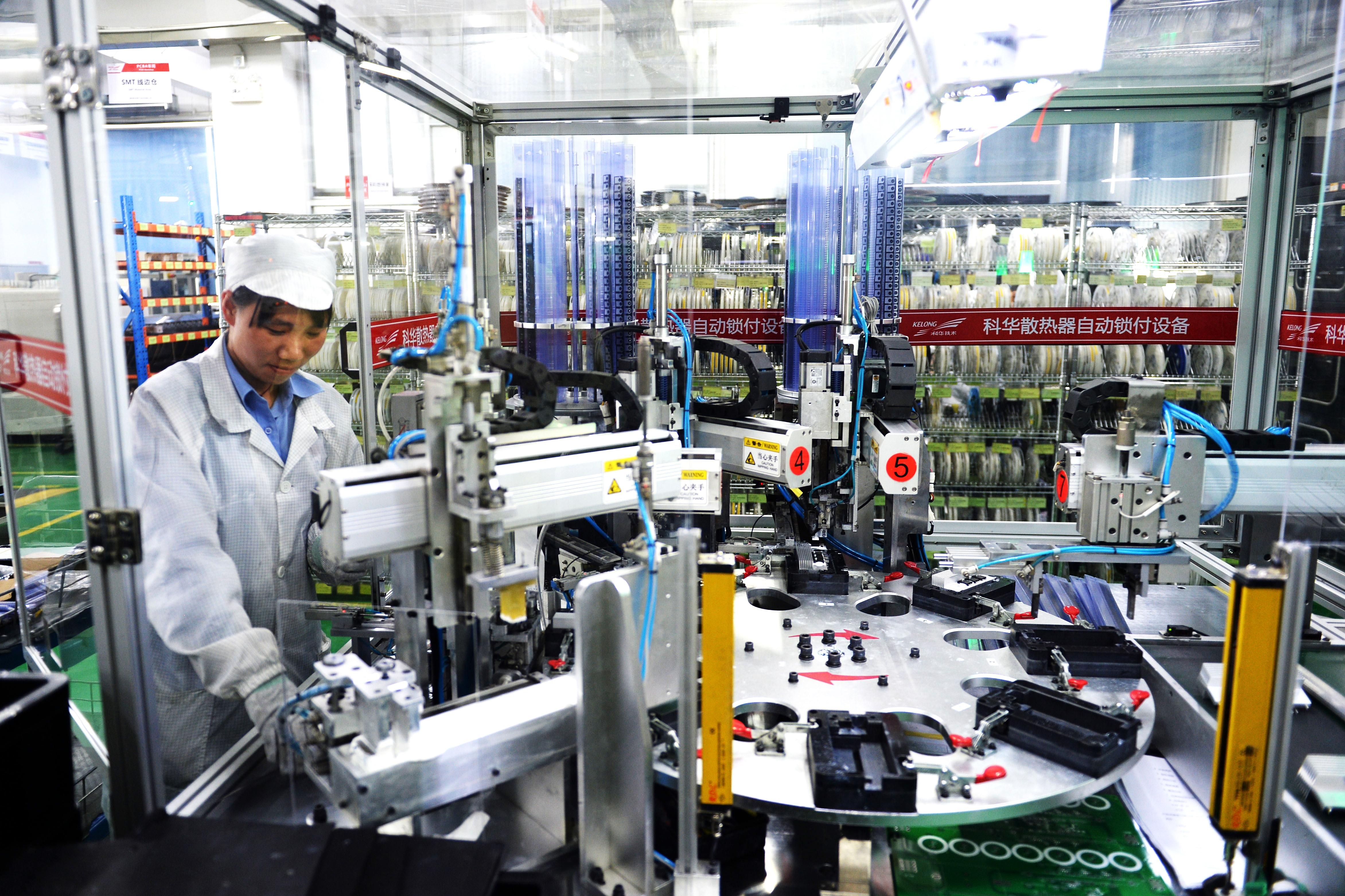Signs of fresh policy boost excite corp executives; recovery revival hopes rise
 An employee works on a circuit board production line of an electronics company in Zhangzhou, Fujian province. (PHOTO / XINHUA)
An employee works on a circuit board production line of an electronics company in Zhangzhou, Fujian province. (PHOTO / XINHUA)
China's sharpening focus on the importance of the private sector, especially its investment, will encourage entrepreneurs, create jobs and revive economic recovery amid downward pressures and external uncertainties, experts and company executives said on Tuesday.
They called for greater efforts to promote indigenous innovation capabilities for breakthroughs in crucial technologies, including digital technologies, and to bolster industrial upgrade and high-quality economic development.
Their call followed a meeting on Monday of the Political Bureau of the Communist Party of China Central Committee where the top leadership stressed the need to optimize the business environment for the development of private enterprises.
More policies and mechanisms should spur private investment and promote regular communication with private enterprises, the meeting said. It also emphasized bolstering employment and greater efforts to expand the middle-income group.
Zhou Maohua, an analyst at China Everbright Bank, said, "The private economy has become an important force to promote Chinese modernization, and plays a vital role in stabilizing economic growth, expanding employment and boosting the transformation and upgrade of traditional industries."
Zhou highlighted that the country's intensified push to promote the high-quality development of the private sector will shore up the confidence and stabilize expectations of private enterprises and entrepreneurs, in addition to boosting the recovery of domestic demand and consumption.
Noting that some private enterprises have been facing challenges in the form of rising production costs, cash flow pressure and financing difficulties, Zhou said, "It is important to encourage financial institutions to step up support for micro, small and medium-sized enterprises, deepen reforms to eliminate hidden barriers that hinder the development of the private sector, as well as encourage and support private companies to enhance core competitiveness."
Monday's leadership meeting was preceded by the unveiling of a document last week to promote the development of the private sector. The guidance detailed 31 measures like support for private enterprises' access to funding, lowering market entry barriers and promoting fair competition.
On Monday, the National Development and Reform Commission, China's top economic regulator, unveiled concrete measures to encourage private investment in some key fields, pledging efforts to maintain the share of private investment in fixed-asset investment at a reasonable level.
Xu Hongcai, deputy director of the economic policy committee of the China Association of Policy Science, said the central authorities' supportive attitude toward the private sector will help invigorate the vitality and creativity of private enterprises, besides injecting fresh momentum into the country's long-term economic growth.
Xu said more efforts are needed to encourage the private sector's investment in high-tech and equipment manufacturing sectors, improve financial assistance to private investment projects, and further enhance enterprises' scientific and technological innovation capacities.
Li Dongsheng, founder and chairman of consumer electronics maker TCL Technology Group Corp, said the latest supportive policies have set the direction for the high-quality development of the private sector and "will greatly boost our confidence and determination for future growth, and stimulate the entrepreneurial spirit of private businesspeople."
Li said TCL Technology will continue increasing spending on research and development, make breakthroughs in key technologies in strategic emerging fields and enhance its own innovation capacities.
The private sector contributes about half of China's tax revenue, 60 percent of its GDP and 70 percent of its technological innovation. It also accounts for 80 percent of urban employment, according to the Ministry of Industry and Information Technology.
Zhou Hongyi, founder of Chinese cybersecurity company 360 Security Group, said the recent policy development has affirmed private enterprises' significant role in driving technological innovation and stabilizing employment.
"Private enterprises should make full use of their strengths to speed up the construction of digital infrastructure and press ahead with the digital and intelligent transformation of the traditional manufacturing sector, in a bid to help boost the development of the real economy," he said.


